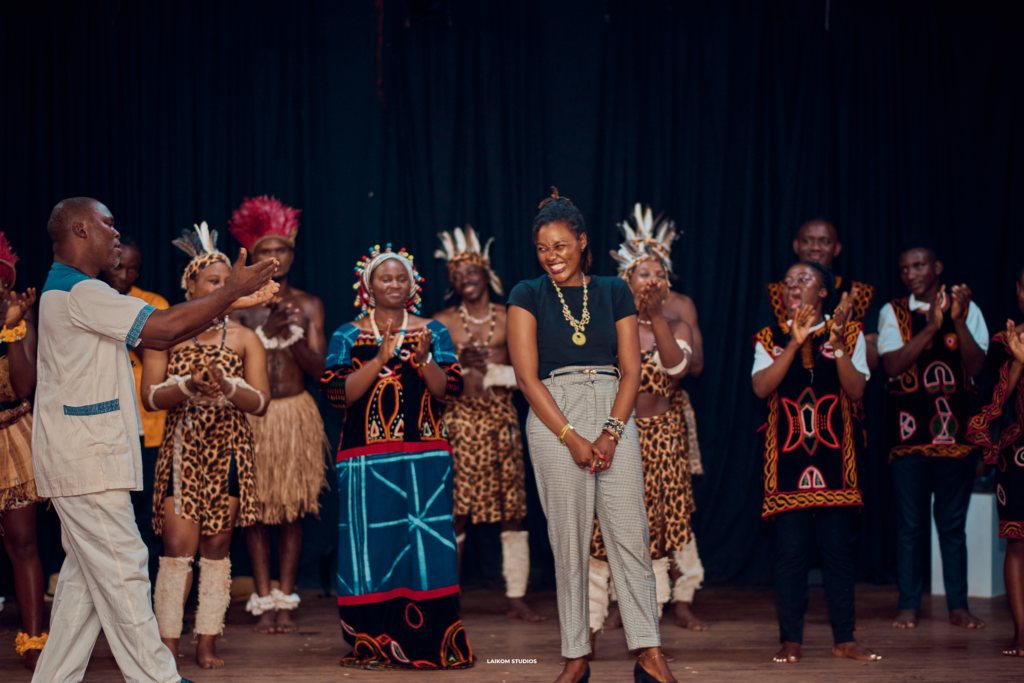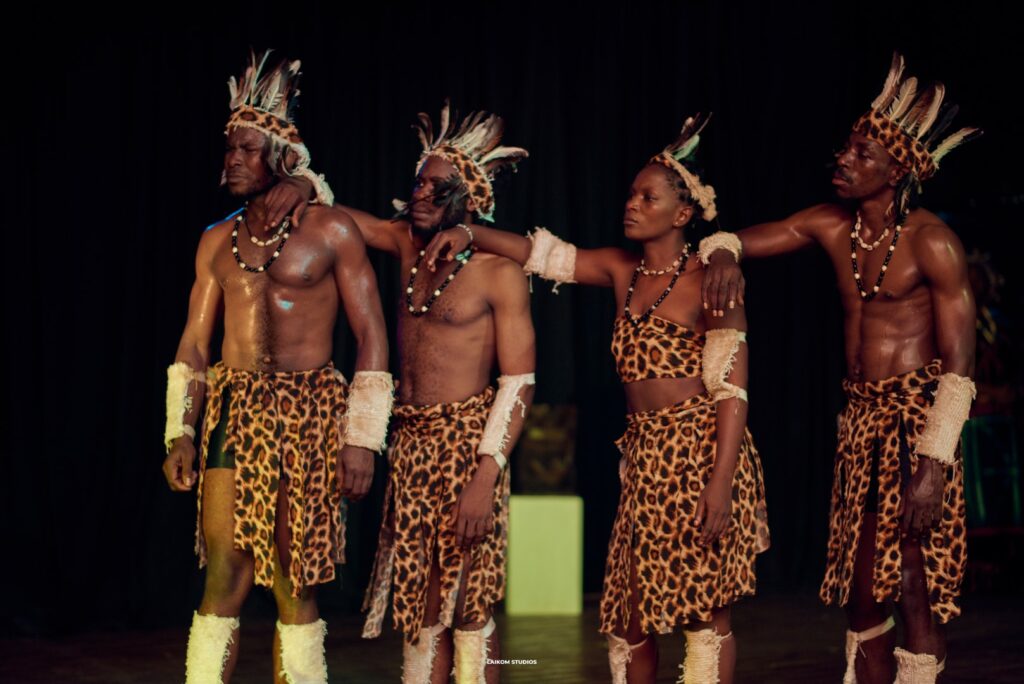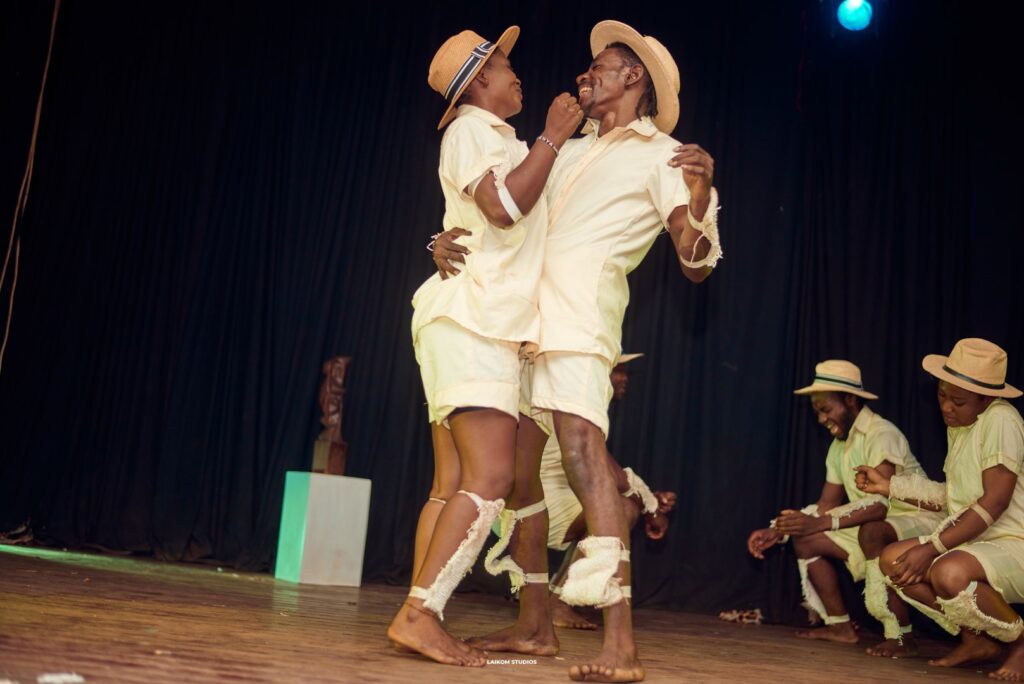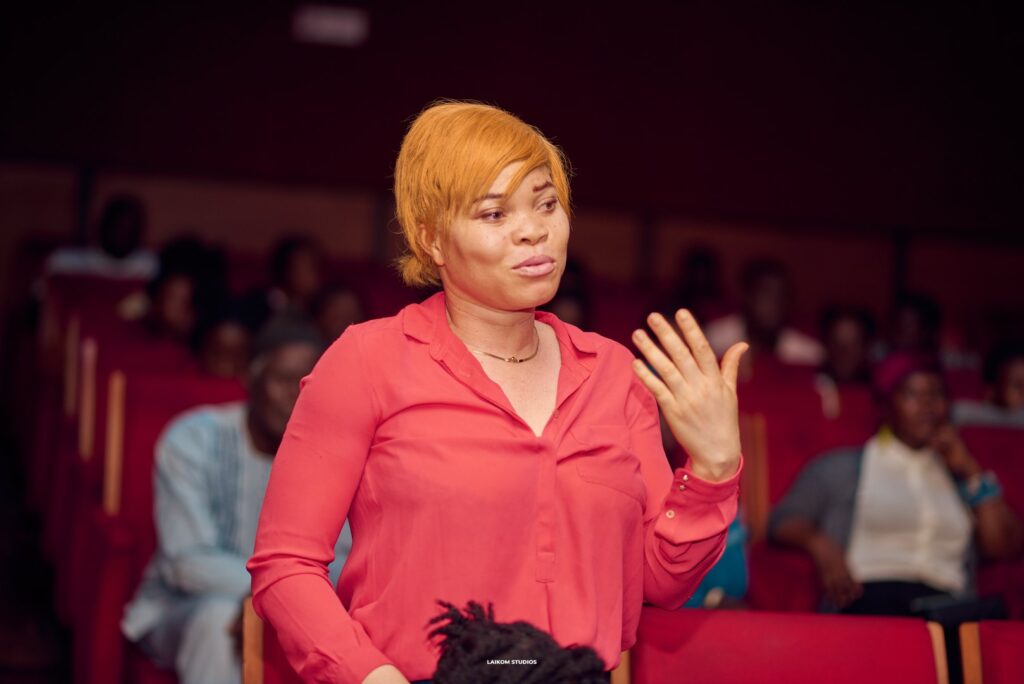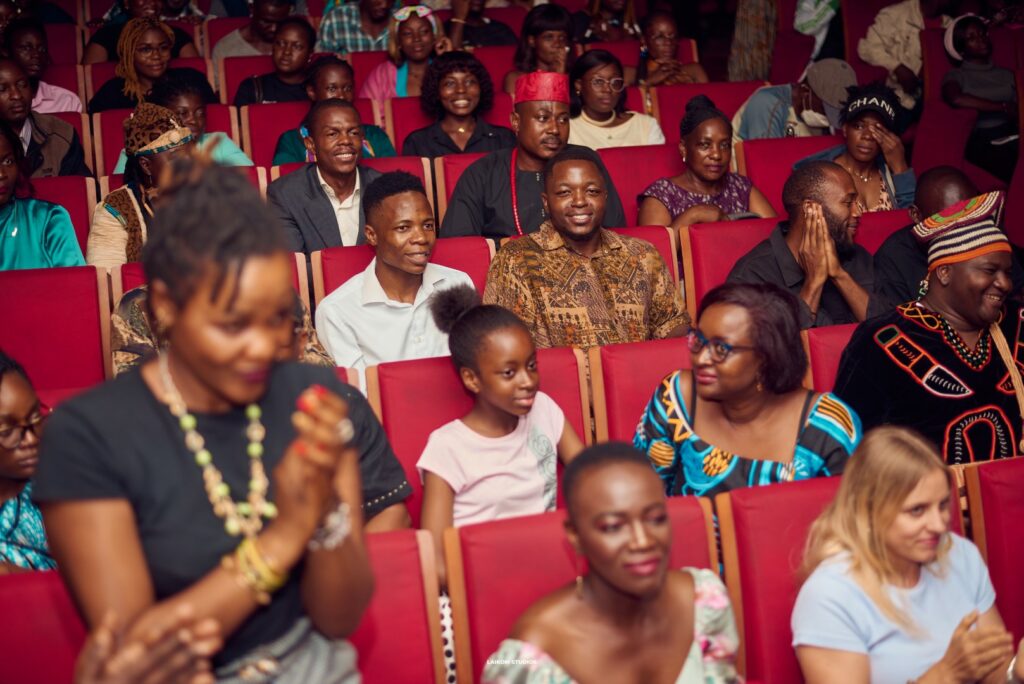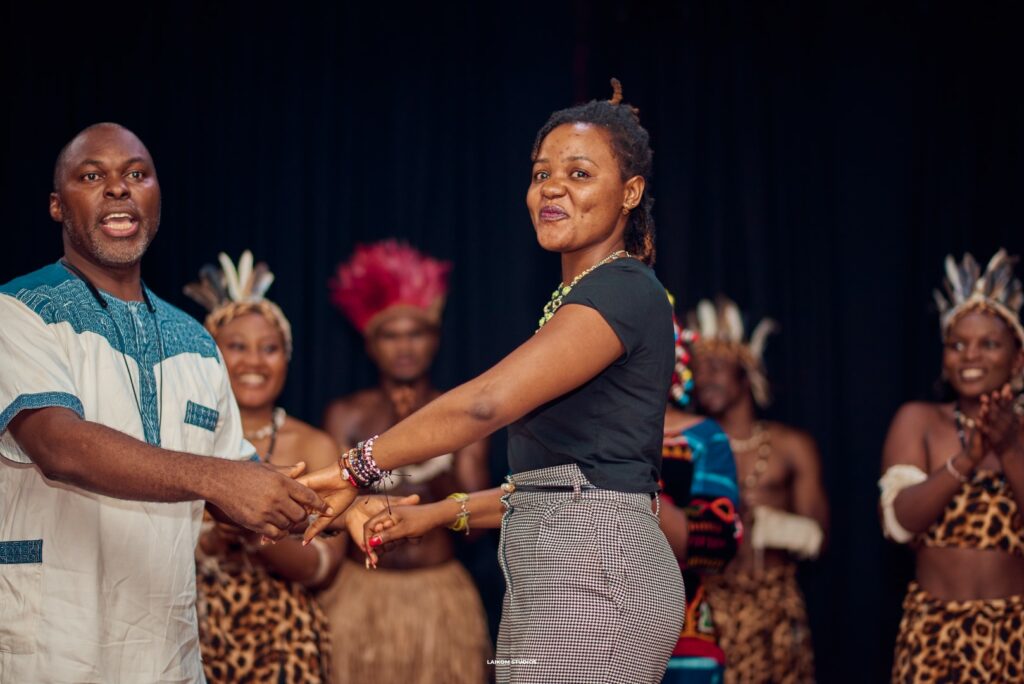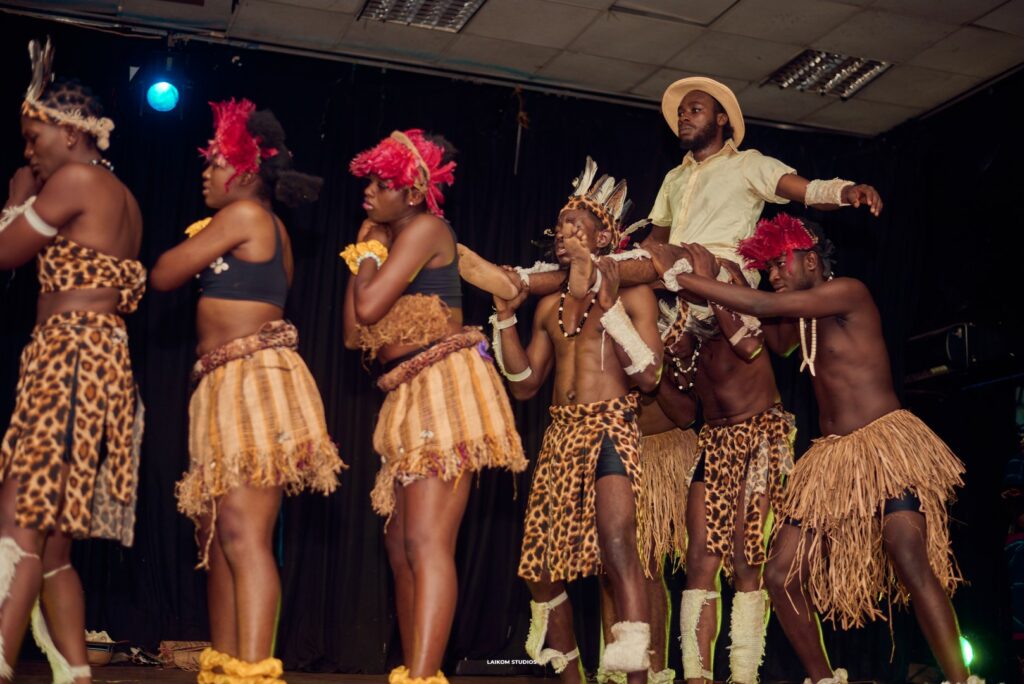
As the question of confronting the colonial past with a focus on restitution gains grounds, there is still a huge discrepancy in awareness and storytelling. Europeans are increasingly taking different approaches to tell our shared history: Sometimes not an accurate representation of facts and experiences. Back in Cameroon, the understanding of our history and appropriation of culture has been severed by different colonial narratives imbibed also in Christianity. Confronting the colonial past becomes a critical step in addressing this severed connection. But how can we address what we don’t understand?
SHF believes that a critical aspect of decolonization is changing mindsets: thus the focus on sensitization. What better way to do this than use theatre performance?
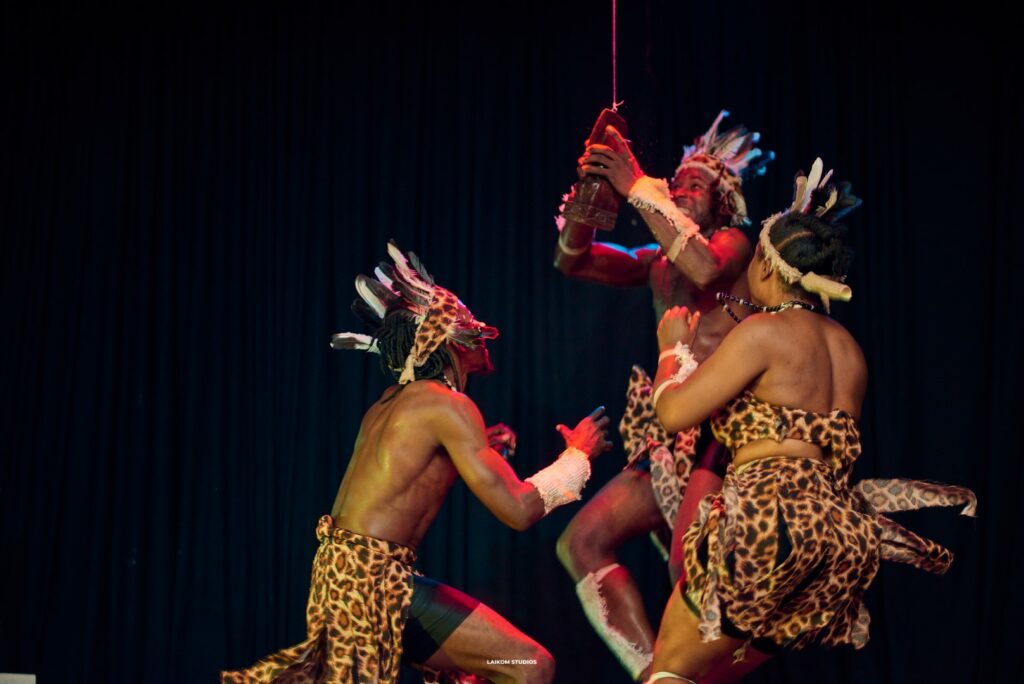
The Shamble of Haunted Africa is a theatre performance inspired by the growing movement for the return of Cultural Heritage looted in colonial times. The maiden performance that took place in the capital city of Cameroon, Yaounde highlighted the devastating consequences of the colonial encounter between Europe and Africa with a focus on the encounter between Germany and Nso, and the restitution of Ngonnso.
For the first time, many people would be hearing the story of our shared history from an African perspective. But it is also the first time many will be hearing about Restitution. This is not because they do not want to know but because these conversations about a shared history are happening in Europe despite the fact that Africa is a key stakeholders.
“It was my first time hearing about restitution and actually learning how important it is for me to add my voice to the fight”
Stephen, Student at University of Yaounde 1 Tweet
From forced labor under precarious conditions to looting, the Shambles of Haunted Africa exposed the atrocities against humanity, where Africans were considered ‘monkeys’ and not deserving of life. Namibia, Tanzania, and the Democratic Republic of Congo are also featured as some examples of countries on the African continent with untold pain and suffering from Genocides, intentional infliction of illnesses to curb resistance, looting, sexual harassment, and torture.
With more than 70% of the hall made up of young people, the reception and relevance of the topic were clear: the cheers, the claps, the tears, and the euphoria all expressed at deserving moments.
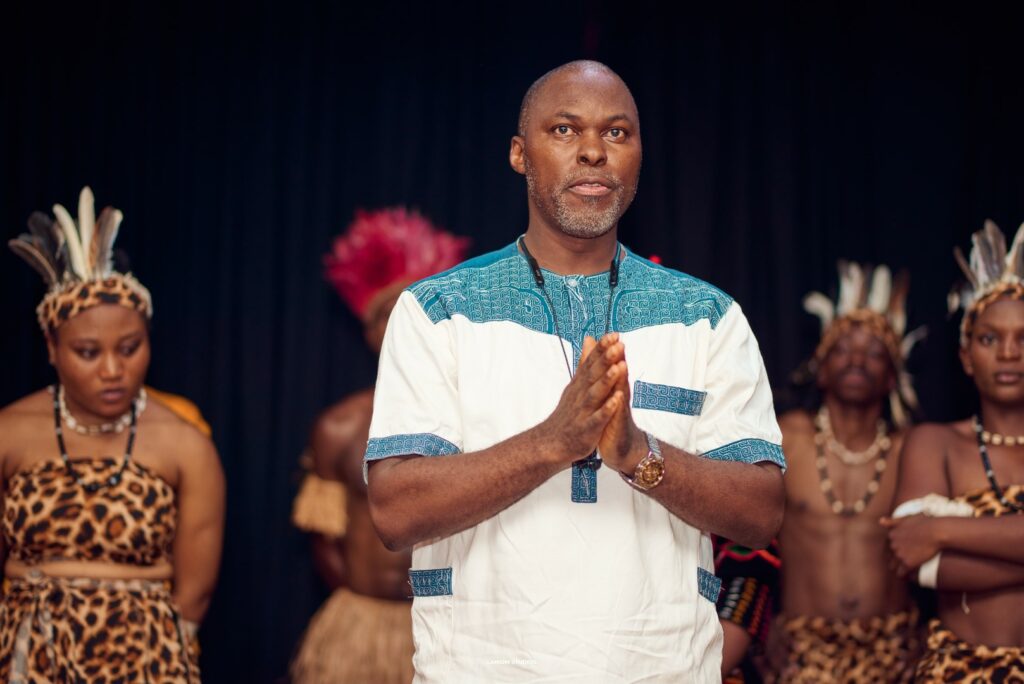
I feel very fulfilled. Mission accomplished. The audience reception is the most important part of the work I do and watching everyone connect and engage with the performance this much, the hard work and sleepless nights were definitely worth it.
Tafor Ateh, Director and Writer. Tweet
Shift in mindsets
The coming to a new understanding of the topic was critical not just for the audience but also for the performers, thus the holistic approach to involve performers from the onset of research work. Tasked to research under different topics such as People in the restitution conversation, encounters with the colonizers, institutions, and evolution of conversation, the performers would not only interpret and speak out words, they would fully understand the topic, appropriate the message and “relive” the experiences of the ancestors in depth.
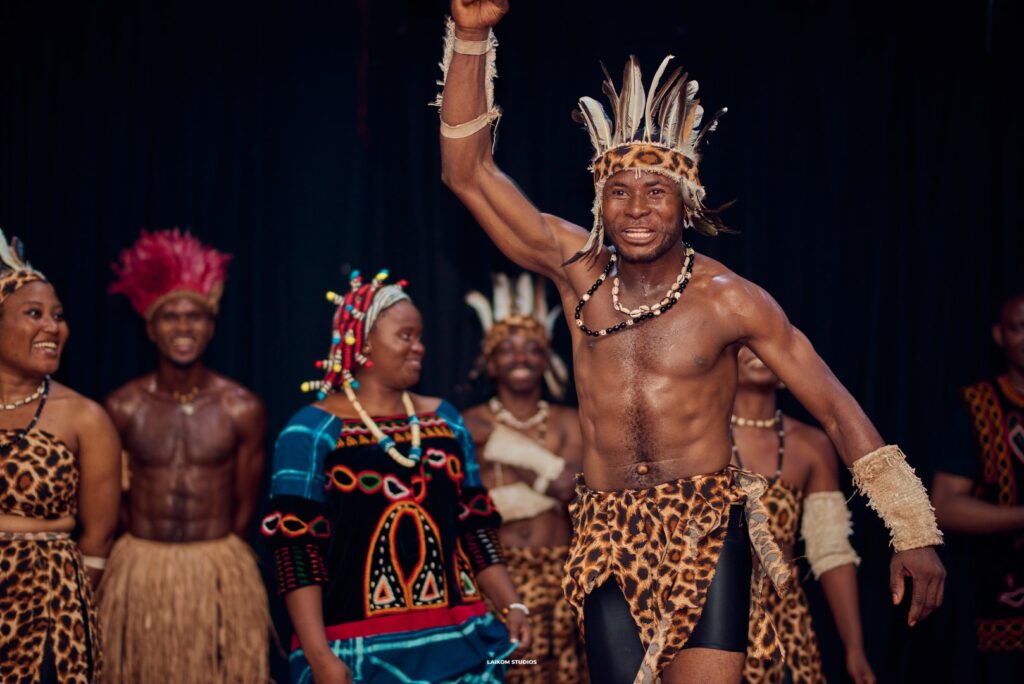
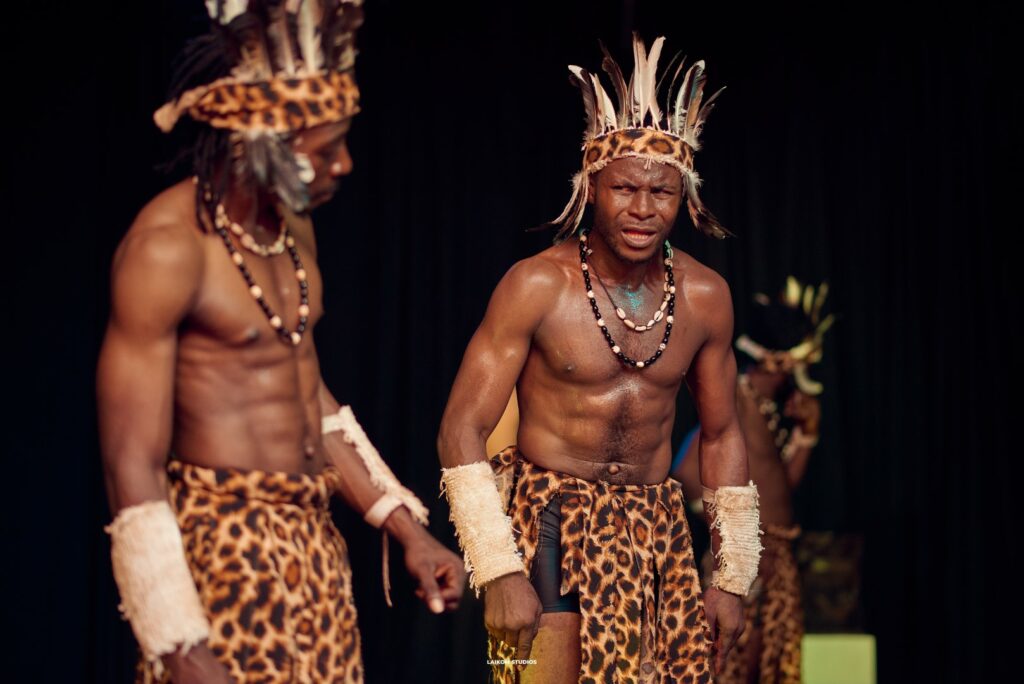
I am a brand new person now. The research is the best part of this project for me. It is the first time in my many years as an actor to be part of the research. Usually, we interpret written scripts but doing the research myself has helped me understand and appropriate ‘Self as an African. I am on a journey to reconnect with my culture and I am ready to go to the ends of the world to ensure restitution.
Victor Doh, Actor Tweet
A theatre performance is only as successful as the debates it resurrects and the freedom of expressing different perspectives it accommodates. Key questions like ‘why now’ why at all, what next breath purpose and meaning to this part of the program. The diversity of the audience enhanced post-performance conversations. From professors in the fields of African Literature, Theatre, sociology, and Anthropology, to students, the press, and creatives, a rich conversation that ensued could only lead to a common voice ‘Bring Back our cultural heritage’.
The evolution of mindsets is unarguable of the top achievements. With everyone wanting to know more about the event, asking for the next performances and how they can contribute, SHF is proud to have achieved the primary goal of sensitizing the public on the importance of confronting the colonial past.
What next:
SHF is planning a re-performance to a wider audience based on the reception, relevance, and public demand as well in September – A capacity of 1000 people.
Our appreciation goes to all our supporters, friends, colleagues in the conversation, and partners.
Our work on restitution is supported by Open Society Foundations
